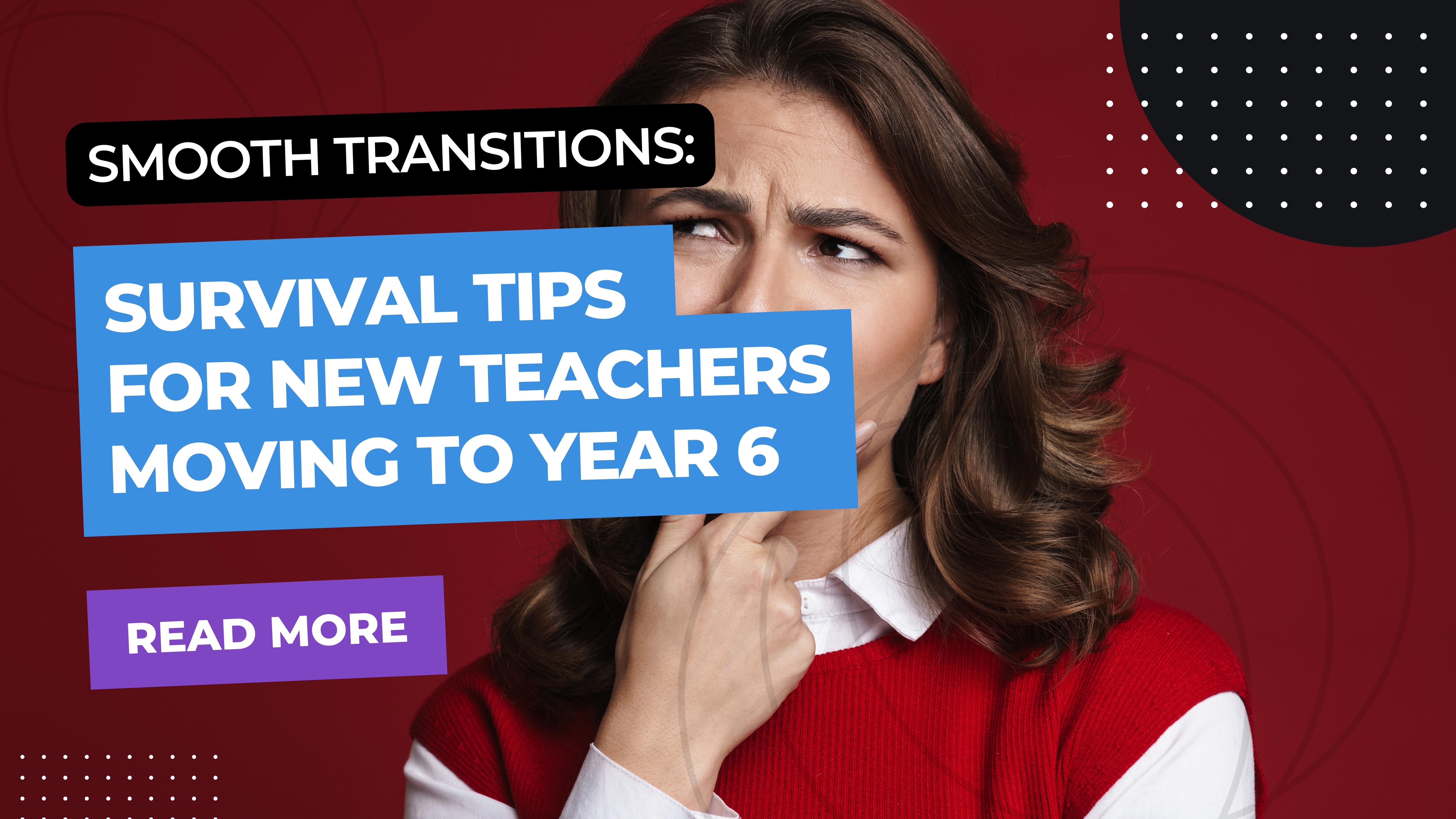Smooth Transitions: Survival Tips for New Teachers Moving to Year 6
Joining a new year group as a teacher can be both exhilarating and overwhelming, especially when it comes to Year 6. As an important milestone in every student’s primary education, Year 6 demands careful planning, effective teaching strategies, and a deep understanding of the curriculum.
To help you navigate these transitions with confidence, we have gathered valuable insights to provide new teachers with a comprehensive outlook on what to expect when joining Year 6. By understanding the unique dynamics of this pivotal year, you can confidently embark on your teaching journey and support your students in achieving their full potential.
Here’s what you need to know:
Tip 1️⃣ – 📚 Research, research, and more research:
Familiarise yourself with the Year 6 curriculum, covering English, Maths, Science, and more. Dive straight into academic challenges by attempting past SATs papers, marking them and see how you get on. This hands-on approach provides a unique insight into what the children need to know. Focus on areas like English grammar, where high-level terminology appears in past papers. This will help ensure effective planning and cover essential content in preparation for teaching year 6.
Tip 2️⃣📚 – 📖 Behavioural Management Policies:
Building solid relationships is the key to a harmonious classroom. Review your school’s behavioural management policy to understand guidelines and strategies to help you confidently navigate the classroom. Year 6 can be an emotionally charged time for students, with increased pressure and heightened expectations.
As a new teacher, it is essential to prioritise emotional well-being and provide the necessary support. Lucy Moss, key stage 2 leader in an inner-city primary school highlights the significance of fostering a supportive classroom environment through regular check-ins, open discussions, and dedicated well-being activities. Useful techniques at SATs Companion that we often encourage our teachers are peer support, implementing mindfulness techniques, and being vigilant for signs of stress or anxiety. By nurturing emotional resilience and offering a safe space for students to express themselves, you can ensure a positive and inclusive learning environment.
Remember, Year 6 students are still kids at heart! Compared to secondary schools, kids in primary school relish being acknowledged for their merits with stickers and special perks! So, celebrate their achievements, big or small, and watch them shine with pride!
Tip 3️⃣ – 📔✨ The Art of Continuing Professional Development (CPD):
Continuing professional development is the key to working smarter, not harder. New teachers often mistake that students possess prior knowledge, but it’s important to recognise that they may have forgotten or require reinforcement. Seek support from teachers who have journeyed through Year 6 before. Weave the threads of learning by building strong foundations with teachers who hold a wealth of knowledge about the children and their previous year curriculum.
Sharing expert advice from English Lead teacher, Jamie Sullivan, recommends striking a balance between academic rigour and enjoyable learning experiences. Plan opportunities for creative projects, field trips, and cross-curricular activities that enhance students’ critical thinking, collaboration, and problem-solving skills. This holistic approach not only makes learning enjoyable but also prepares students for the broader challenges they will encounter beyond primary school. Access the full article here on SATs advice from top KS2 teachers.
Tip 4️⃣ – 🌈🤝 Build long-lasting connections with your students:
Break the ice and create an engaging learning environment by connecting with your students on a personal level. While each school has its unique policies and regulations, bonding with your students can prove to be a powerful tool to keep them entertained and invested in your lessons. An unconventional yet thought-provoking icebreaker strategy led by Year 6 teacher Sophie Bartlett suggests, deliver your own teaching in SRE (Sex and Relationship Education). This empowers children to make informed decisions later in life and by doing so, you show care and understanding for their developmental needs. While SRE is indeed a sensitive topic, it also allows students to discuss sensitive matters comfortably with you, leading to valuable insights that help tailor your teaching approach effectively. It’s a mutual learning experience that fosters growth and understanding.
Tip 5️⃣ – 🏫💨 Transition and Secondary School Preparation:
Start your journey by communicating with your local secondary schools as much as possible for a seamless transition. Not only towards the end of the year but early-on to get a deeper understanding of what schools expect from their future students. As the countdown begins, inquire if there are any specific topics or skills they would like you to cover in preparation for the transition. For instance, research has found that a homework diary can help familiarise students with secondary school practices and responsibilities. Remember, secondary school is a whole new experience for your students, so gather expertise and collaborate with colleagues within your school to organise transition days, workshops, or visits from secondary school staff. By addressing any concerns, answering questions, and providing emotional support, you can alleviate anxiety and ensure a smooth transition for your students.
What’s next?
Stepping into Year 6 as a new teacher can be an exciting and transformative experience. By preparing for SATs, supporting the transition to secondary school, balancing the curriculum with enriching activities, and prioritising emotional well-being, you will lay the foundation for a successful year for both you and your students. Remember, Year 6 is not just about exam preparation; it is an opportunity to empower students, nurture their growth, and create lasting memories. Embrace the challenges and joys of Year 6, and watch your students flourish academically, socially, and emotionally under your guidance.
Here are some useful links for Year 6 advice:
Learn something? Share this post if you found it helpful




Leave A Comment
You must be logged in to post a comment.